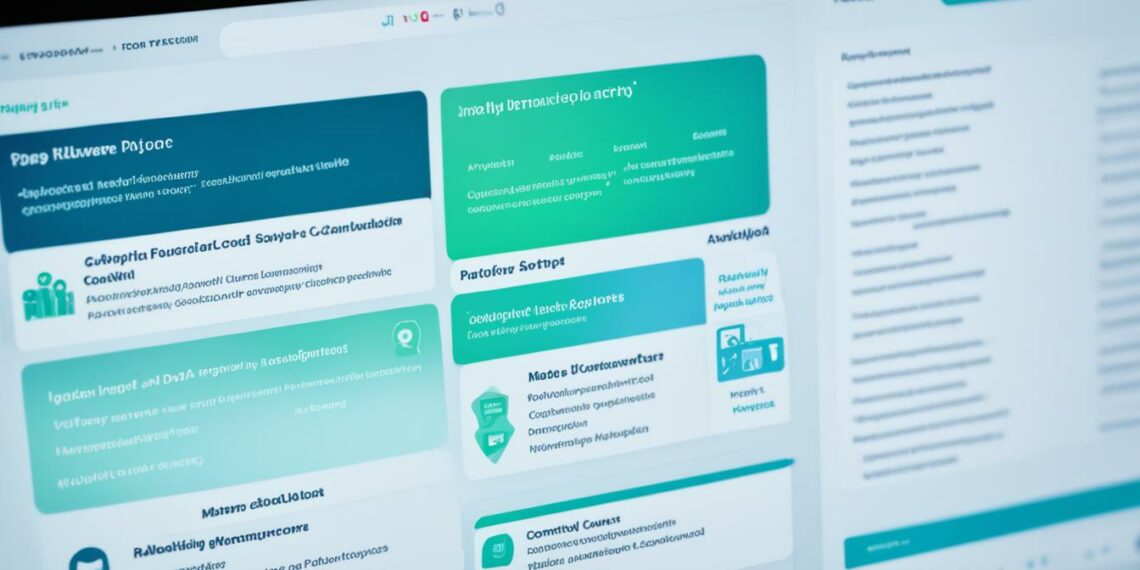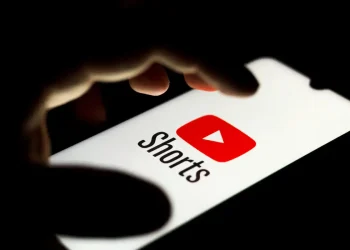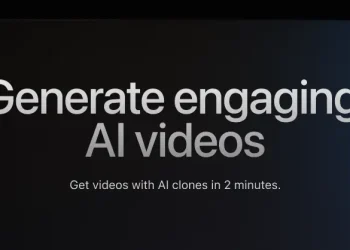Did you know 60 percent of job seekers give up on filling out job applications because they’re too long and complex? This fact shows how important it is to find new ways to make hiring easier. AI-powered job matching is a new method that uses smart algorithms to match job seekers with jobs that fit their skills and dreams. It helps both job seekers and employers find their way in the job market better.
As the job market changes, AI tools like Autojob, Arytic, Talentprise, and Pyjama Jobs are becoming key. They solve the problems of long applications and skill shortages, which 45% of employers worldwide face. This technology makes finding a job and hiring people more efficient and welcoming for all.
Key Takeaways
- AI-powered job matching simplifies the recruitment process for job seekers and employers.
- Machine learning job recommendations are enhancing the efficiency of talent acquisition.
- Autojob, Arytic, Talentprise, and Pyjama Jobs are leading platforms in AI recruitment technology.
- Reducing application complexity can significantly improve the job-seeking experience.
- AI tools can address skill shortages, which affect a large percentage of global employers.
- Utilizing standardized data helps prevent bias in recruitment processes.
The Rise of AI in Job Matching
Artificial intelligence is now key in finding jobs. AI recruitment software changes how people find jobs. It uses data to make hiring faster and better.
AI has changed the way we look for jobs. It’s not just about sorting through resumes anymore. Now, AI helps match people with jobs in a smarter way.
Understanding AI’s Role in Recruitment
AI has made job searching better for everyone. 87% of job seekers are unhappy with old ways of finding jobs (Glassdoor). AI makes matching jobs with people 75% more accurate than before (Harvard Business Review).
Companies like Microsoft and Moss Adams use AI to talk to candidates. This shows how important AI is in finding jobs today.
Historical Context and Evolution
Recruitment has changed a lot over time. From paper applications to AI, it’s a big change. Old ways often had biases because of limited data.
Now, systems like Workday and Taleo use algorithms to pick candidates. They look for a 70% to 80% keyword match in resumes. They also consider how active a candidate is, which helps decide who gets noticed first.
But, AI can still have biases, especially against certain groups. The Equal Employment Opportunity Commission is working to make sure hiring is fair. They want to make sure everyone has a fair chance at getting a job.
How AI-Powered Job Matching Works
AI-powered job matching uses advanced algorithms to make hiring better. These algorithms look at skills, experiences, and what each person wants. They find the best job matches with a lot of precision thanks to predictive hiring algorithms that get better over time.
Key Algorithms in AI Job Matching
Several algorithms help match jobs with the right people in data-driven talent acquisition. Some important ones are:
- Machine Learning Algorithms: These learn from data to make better matches over time.
- Natural Language Processing (NLP): NLP checks job descriptions and profiles for the right skills and needs.
- Collaboration Filters: These look at what people like and their past choices to suggest good roles.
These algorithms work together to quickly find the right matches. For example, AI can pick candidates in just 10 minutes, which is much faster than the old way. This is changing how we hire, making it much more efficient.
Data Collection and Processing
AI job matching works well because it collects and processes a lot of data. It uses user info, like skills and career goals. This info helps algorithms make job suggestions that fit well. The success is shown in how many good matches are found and how fast they are found.
Using data-driven methods makes hiring much more efficient. Companies using AI save a lot of time; for example, they save about 8.1 hours a week. Tools like Hired cut down on finding candidates by up to 45 hours for each job. This shows why AI is a good choice for hiring.
| Method | Accuracy Rate | Time to Shortlist |
|---|---|---|
| AI Job Matching | 85% | 10 minutes |
| Traditional Methods | 60% | Up to 1 hour |
AI can look through lots of resumes and applications quickly, which is a big step forward in hiring. As job boards grow, AI and data-driven talent acquisition are changing how we match people with jobs.
Benefits of Using AI Job Matching Platforms
AI-powered job matching platforms change the way we look for jobs. They make the search faster, more personalized, and match people with jobs better. Thanks to technology, these platforms boost efficiency and give job seekers and employers a better match.
Time Efficiency in Job Searches
AI-powered job matching tools save a lot of time. Looking for jobs can be tough, with many listings to go through. But AI makes it easier by showing jobs that fit what you’re looking for. This cuts down the time spent searching and helps job seekers stand out in a crowded market.
In the UK, tech jobs get about 39 applicants each. AI helps by focusing on the best matches, making the search more efficient.
Personalized Job Recommendations
AI uses machine learning to find jobs that match your skills and goals. This makes searching for jobs more exciting and effective. It means you get jobs that really fit what you can do, not just anything.
This approach also helps avoid sending applications to jobs you’re not right for. Half of applicants for tech jobs might not have the needed skills. So, focusing on the right jobs can make you happier and more successful in your job search.
Improved Employer-Job Seeker Compatibility
AI helps match employers with the right candidates. It uses smart analytics to find people with the right skills and avoid biases. This means companies can find people who fit their culture better, leading to happier employees and less turnover.
This matching also makes hiring faster and more efficient for everyone. It’s a win-win for both employers and job seekers.
| Aspect | Traditional Recruitment | AI-Powered Job Matching |
|---|---|---|
| Time to Fill | Longer due to manual processes | Reduced by up to 20% with automation |
| Candidate Quality | Variable, with unqualified applicants | Higher precision in matching qualified candidates |
| Personalization | Limited to generic searches | Highly tailored job recommendations |
| Bias Reduction | Prone to unconscious biases | Focuses on skills for unbiased decisions |
Using AI in recruitment gives companies valuable insights into hiring trends and what candidates want. Platforms like Interwebs.ai show how important it is to value user content and community in tech innovation.
Popular AI-Powered Job Matching Tools
More and more, people are using technology to help them find new jobs. Many platforms are now using AI to make job searching better. They offer solutions that fit what each person needs.
Overview of Leading Platforms
There are many AI tools out there to help you find the right job. Some top ones include:
- Talentprise – Matches job seekers with jobs that fit their skills and likes.
- ResumeNerd – Helps create resumes that get past applicant tracking systems (ATS).
- Autojob – Makes applying for jobs easier with one-click submissions.
- Sonara – Gives personalized job tips through smart job search engines.
- Arytica – Offers insights to help users check if a job is a good fit.
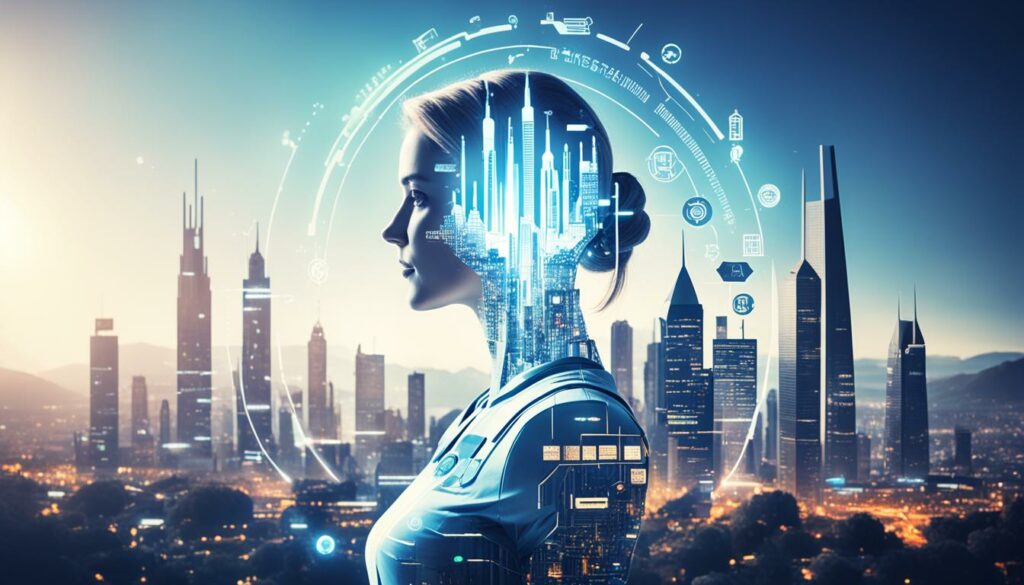
Features to Look For
When picking AI job matching tools, some features make a big difference. Look for these:
- Robust Skill Assessment Algorithms: These algorithms match jobs with people’s skills well.
- Network-Building Opportunities: Tools that connect you with industry pros can open up more job options.
- Real-Time Analytics: Tracking your job search and application progress can improve your strategy and success rate.
With more AI job matching tools available, people can use these technologies to improve their job search. They can also connect better with potential employers. The future of finding a job is closely linked with AI, making it key for career growth.
AI-Powered Job Matching: A Step Toward Inclusivity
AI-powered job matching platforms are changing how we find jobs, especially by making things more inclusive. They use data to find the best candidates, avoiding the biases of old hiring ways. This means looking at what candidates can do, not just what they seem like.
Reducing Bias in Recruitment
AI helps fix the biases that can happen when hiring. Many companies struggle to be fair in who they hire. AI can look at candidates based on their skills and past work, not just what they seem like. This makes hiring more fair and lets more kinds of people get jobs.
Enhancing Diversity and Inclusion Efforts
Companies can work on being more diverse and inclusive by setting clear goals and using advanced data. By checking how they’re doing, they can make sure they’re finding a wide range of talent. AI can even help make resumes for people who don’t have one, opening up more job opportunities.
Job platforms like Jobiqo are at the forefront of this, working with over 200 platforms and helping with more than 10 million job applications a year. Matthias Hutterer from Jobiqo says working with places like Johannes Kepler University is key to making sure job matching is fair.
Understanding Predictive Hiring Algorithms
Predictive hiring algorithms are key in today’s recruitment world. They build models that predict how well a candidate will do and fit into a job. By using data like past hiring info, how well people performed, and how happy they were in their jobs, these algorithms make hiring easier and more accurate.
What Are Predictive Hiring Algorithms?
These algorithms look at many factors to check if a candidate is right for a job. They find patterns that show who will be a good hire. This helps companies pick the best people faster, which is important in a tough job market.
Real-World Applications in Job Matching
Predictive hiring algorithms work in AI-powered job matching tools. These tools make screening candidates faster and better, leading to smarter hiring choices. AI can look through lots of applications quickly, finding candidates who might not even be looking for a job but have the right skills.
These algorithms get better over time, making them more accurate. This means job seekers get matched with jobs that fit their skills and interests. Companies using these tools also see less bias in hiring, focusing more on what candidates can do.
This technology makes hiring fairer and helps everyone involved in the process work better together. It also gives valuable insights into how hiring meets legal standards, helping with better recruitment plans.
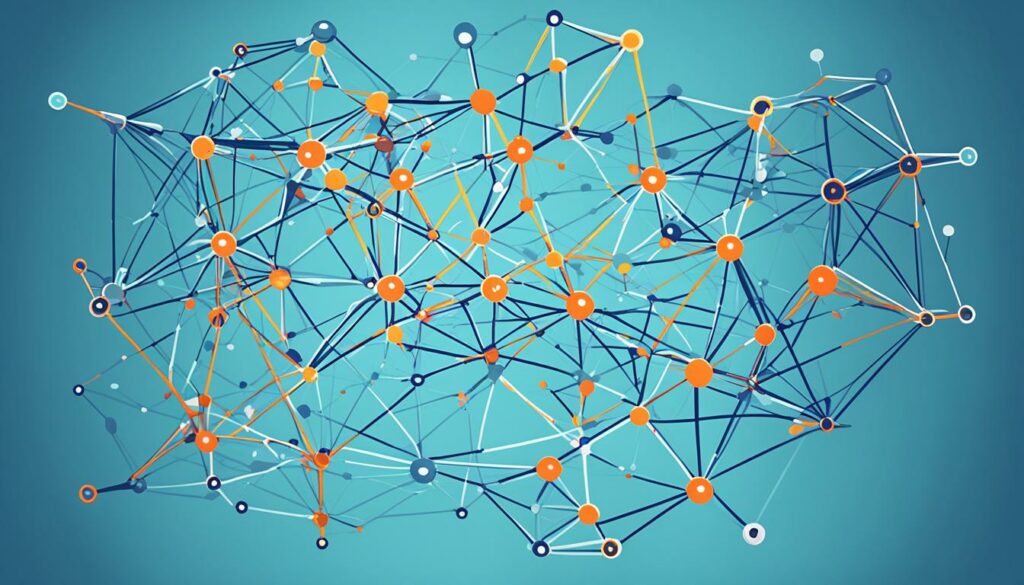
The Role of Natural Language Processing in Job Searches
NLP is changing the way we search for jobs. It looks at job descriptions and candidate profiles to make matches more accurate and relevant. This means it finds the right skills and qualifications for the job and the right candidate for the job.
How NLP Enhances Job Descriptions
NLP makes job descriptions better. It understands what employers are looking for, making job listings more appealing to the right people. Key features include:
- Contextual Understanding: It gets the real meaning of job requirements, not just the keywords.
- Skill Identification: It points out the key skills and qualifications needed, helping candidates see if they’re a good fit.
- Enhanced Visibility: It uses SEO to make job postings easier to find in a crowded market.
Interpreting Job Seeker Profiles with NLP
AI recruitment software uses NLP to deeply understand job seeker profiles. It looks at experience, preferences, and goals with advanced algorithms. The benefits are:
- Improved Matching: It boosts the chances of matching candidates with the right jobs by analyzing details.
- Personalized Recommendations: It keeps suggesting jobs based on current trends and user actions, making searching better.
- Data-Driven Insights: It gives employers useful insights on candidate metrics and how to improve hiring.
Looking into how AI is changing education with tools like intelligent tutoring systems shows how AI is also changing job recruitment. It highlights the strong abilities of AI technologies.
AI Resume Analysis Tools
AI resume analysis tools are key for job seekers wanting to boost their chances in a tough job market. They help make resumes better by matching them with job needs. These tools check a resume against what recruiters look for, giving feedback to make it more visible to hiring systems. These systems only look at a resume for about six to seven seconds.
Benefits of Resume Optimization
Using AI for job matching boosts the chance of getting an interview. These tools give advice on how to make a resume better. They make sure candidates show off the right skills and keywords for job ads. This way, job seekers can make their resumes better and be noticed in a crowded field, increasing their chances of getting past the first step.
Popular AI Resume Tools and Their Features
In 2025, top AI resume tools include Jobscan, which makes resumes fit certain industry standards, and Kickresume, which offers custom cover letter help. Tools like Textkernel and SmartRecruiters have demos and different pricing for users. ChatGBT also gives free resume checks to make sure important keywords are included, making the resume better. By picking the right tool, candidates can make their applications more appealing to employers.
FAQ
What is AI-powered job matching?
AI-powered job matching uses advanced algorithms and machine learning. It connects job seekers with jobs that match their skills and goals. This makes hiring better for both job seekers and employers.
How does AI recruitment software improve the hiring process?
AI recruitment software makes matching candidates with jobs more efficient. It looks at a lot of data to find the best fit. This process is faster, less biased, and more engaging.
What role do predictive hiring algorithms play in AI job matching?
Predictive hiring algorithms predict how well a candidate will do in a job. They look at past hiring data and job satisfaction levels. This helps match job seekers with the right roles.
How do AI resume analysis tools help candidates?
AI resume analysis tools make resumes better match job needs. They check resumes against job criteria and give feedback. This helps candidates get noticed and land interviews.
What are the benefits of using AI-powered job matching platforms?
These platforms save time in job searches. They give personalized job suggestions based on your skills and goals. This leads to better matches between employers and job seekers.
Can AI job matching promote inclusivity in hiring?
Yes, AI-powered job matching can reduce hiring biases. It looks at candidates based on skills, not other factors. This leads to a more diverse and inclusive workplace.
How does Natural Language Processing (NLP) contribute to job searches?
NLP helps by analyzing text to make job descriptions clearer. It also understands what job seekers want, making job matching more efficient.
What features should I look for in AI recruitment software?
Look for strong skill assessment algorithms and personalized job tips. Also, check for network-building tools, real-time analytics, and resume optimization tools to improve your job search.
Are there specific AI-powered job matching platforms that stand out?
Yes, platforms like Autojob, Talentprise, and Arytic are top choices. They offer easy one-click applications, personalized emails, and easy-to-use interfaces.
